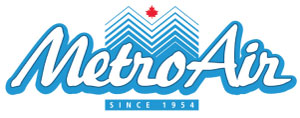When the heater in your Brampton, Ontario home reaches the end of its lifespan, you’ll have the chance to upgrade to an option that saves you money all winter long. Although electric furnaces are receiving considerable attention for their sustainable, emission-free designs, they’re hardly the most economical choice in electric heating. Heat pumps can use up to half the electricity that electric furnaces require, and this can mean both lower energy bills and a smaller carbon footprint overall.
Heat Pumps Don’t Actually Produce Heat
Electric furnaces force air over heated electrical coils before distributing it throughout homes. Although this is far better for the environment than the combustive processes of natural gas and oil-fired heaters, it doesn’t match the efficiency of heat pumps. This is because heat pumps don’t actually produce heat. Instead, they simply transfer it.
Air-source heat pumps can harness heat from outside of the home and move it inside. This process works much the same as an air conditioner’s cooling cycle. However, it’s reversed. Transferring warm air indoors can use up to half the electricity that electric furnaces use to heat their coils and keep them warm. Moreover, heat pumps can source outdoor heat even when outside temperatures reach or fall below the freezing point. In fact, there are even a number of high-performance or cold-weather heat pumps that can continue sourcing and transferring outdoor heat even when temperatures fall below negative 23 degrees Celsius.
Comparing Heat Pumps, Baseboard Heaters, and Electric Furnaces
HVAC ductwork is an important consideration when calculating the economy and efficiency of home heating systems. Some electric heaters don’t require HVAC ductwork. For instance, baseboard heaters have metal fins that are heated by an electric current. As warm air rises, cold air from within the room gets pulled into a baseboard heater and moved across its fins. This cycle continues until the indoor temperature reaches the temperature that’s been set at the thermostat.
Their lack of HVAC air ducts makes baseboard heaters more efficient than many gas and oil-fired furnaces options. However, these heating systems take up valuable indoor real estate and limit the ways in which residents can configure their furnishings. Using baseboard heating systems also becomes significantly more costly when heating large-sized homes.
While electric furnaces use a similar heating method, they distribute heat by forcing it through central HVAC air ducts. Ductwork diminishes the efficiency of all heating systems by creating the potential for heat loss during distribution. The amount of heat loss that occurs during distribution increases as ducting ages, and as any potential structural damage happens. This is just as true for central heat pumps that rely on ducting as it is for electric furnaces. Thus, to experience optimum energy savings with either of these heating systems, it’s important to keep your home’s HVAC air ducts well-maintained.
Enjoy Year-Round Energy Savings
When you opt for a central, ducted heat pump, you can enjoy year-round savings as the result of your upgrade. Not only can heat pumps source heat from outdoors to create cozy building interiors all winter long, but they can also work in reverse during summer to transfer warm, indoor air outside. Much like their heating process, the cooling process used by heat pumps is far more efficient than that of a standard air conditioner. Thus, with a heat pump, you’ll get a unit that can meet all of your heating and cooling needs, and at a far lower cost than an electric furnace and air conditioner combined.
Is a Heat Pump the Right Choice for Your Home?
If you intend to replace your current gas-fired, oil-fired, or electric heater with a central heat pump, you’ll have to find one that will perform well in even the coldest winter temperatures in Brampton. According to some reports, a good heat pump could help you save as much as $650 a year.
We provide central heat pumps, and we additionally offer HVAC system zoning. With a zoned, central heat pump, you won’t have to pay money to heat or cool rooms that aren’t in-use. In fact, with these two services together, you can lower your home energy bills, limit energy waste, and customize your indoor heating and cooling system to perfectly suit residents’ needs.
We offer heating, air conditioning, and indoor air quality services. We also provide HVAC zoning, fireplaces, and water heaters. If you’re ready to experience the increased efficiency and economy of heat pumps, we can help. Give Pinnacle Group a call today to get started.


